PORTLAND, Ore. (KOIN) — Portland, Oregon is home to more than 645,000 people and many urban experts consider it one of the most livable and progressive cities in the country.

Those same experts will tell you the Portland City Council is the most outdated form of city government compared to other major cities.
“We’re one of the few cities left in the United States that has a commission form of government,” Mayor Ted Wheeler said.
The commission form of government, often referred to as the Galveston Plan, was first introduced in 1901 in Galveston, Texas. In this system, voters elect commissioners citywide rather than by district. Portland voters approved it in 1913 and still operates with six elected leaders for the City Council — the mayor and five commissioners.
For a city that prides itself on being innovative and forward-thinking, Wheeler says Portland’s style of government is stuck in the past.
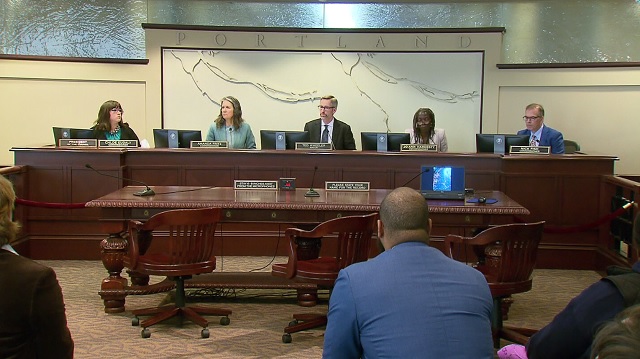
“I would just say if this form of government is truly the best form of government, why isn’t anybody else adopting it? Why have so many cities moved away from it?” Wheeler said.
Policy analyst Kristin Eberhard said commissions were popular around the turn of the 20th century but “cities decided it didn’t really work for them and they all dropped it, except for Portland.”
Portland is the only major US city with this type of government. Even Galveston abandoned the commission in 1960. Seattle overwhelmingly voted to move away from it in 2013.
Eberhard said selecting electing commissioners at large leaves certain parts of the city and minorities without a voice on the council.
“You have this history of under-representation of people on the east side under representation of renters, under-representation of woman, people of color and that’s a lot due to the way that we vote,” Eberhard said.
Eberhard: 7 key questions about how to change Portland city government
Portland stands alone in how we elect commissioners. In other cities, councilors are elected by geographic districts.
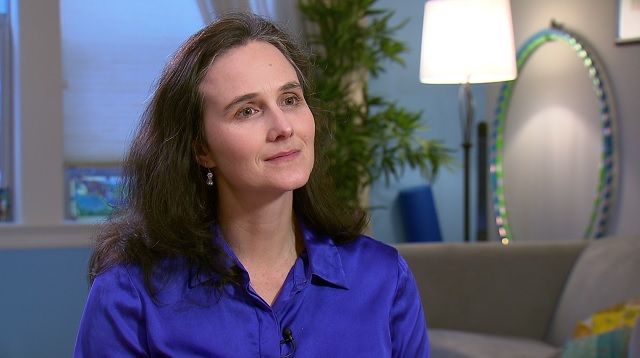
Eberhard said Portland’s city councilors tend to live west of the river even though only 20% of Portland residents live on the west side.
“Here in East Portland, people feel like no one is listening to them when it comes to city government, that they’re the forgotten people here,” East Portlander Jeff Rempfer said.
Rempfer supported a ballot initiative to create a council elected from districts in 2015.
He said when neighbors had concerns about a new apartment building under construction and traffic flow, “the commissioner in charge of the bureau for transportation wouldn’t even come to our neighborhood association meeting. So who do we go to then? Do we go to another commissioner who says ‘it’s not my bureau?'”
Residents in Lents, like Neola Larsen, have the same complaint. She and her neighbors have seen an influx of homeless camps, trash and crime.
“It’s kind of like Lents, well Southeast Portland in general, is kind of forgotten by the city,” Larsen said. “We’re like the poor step-cousin.”
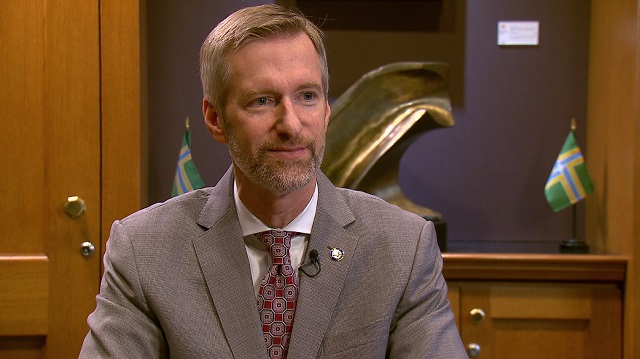
“All we’re saying out here is,” Rempfer said, “we want someone to represent us. And the only way to do that is for most of us to have districts.”
Wheeler said being elected in a district you live in is good basic city government.
“People who live in the community, people who go to community meetings, people who are active in their neighborhoods and can really represent the neighborhood issues at City Hall,” Wheeler said.
The commission form of government also means commissioners are focused on the city bureau they’re assigned to.
“When you’re assigned a bureau, you’re in charge of that bureau and you’re sort of looking at that bureau — maybe to the exclusion of other things that are happening in the city,” Eberhard said.
Former commissioner Steve Novick saw this first hand.
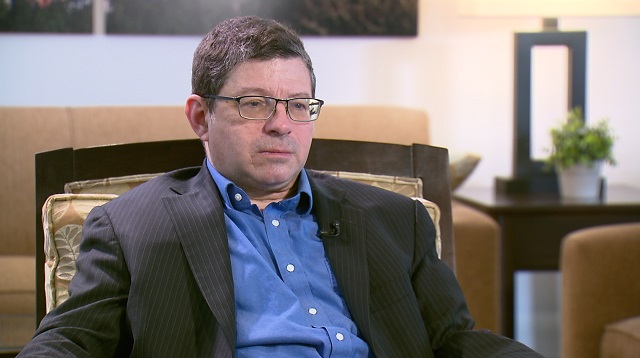
“The worst part of it is this idea of assigning bureaus to commissioners because when you assign a bureau to a commissioner, two things happen. That bureau becomes incredibly important to that commissioner and all other bureaus become somehow less important,” former city commissioner Steve Novick said.
While on the city council, Novick was assigned to the transportation bureau, which took up most of his time and effort.
“I think the bigger problem is people focused on their bureaus and they’re not available to focus on the big picture and to look at issues in other bureaus,” Novick said.
“We sort of have the worst of both worlds in this commission form of government because we ask people who are running often as community activists to become managers of enterprises and they typically don’t have that level of experience,” Wheeler said.
Another problem is accountability.
“We don’t have standards for customer service enterprise-wide in the City of Portland. It’s bureau by bureau by bureau and those bureaus don’t necessarily communicate, which means if I’m a resident and I want City Hall to do something for me, there are one of dozens of different phone lines I have to figure out who I’m supposed to call for accountability,” Wheeler said.
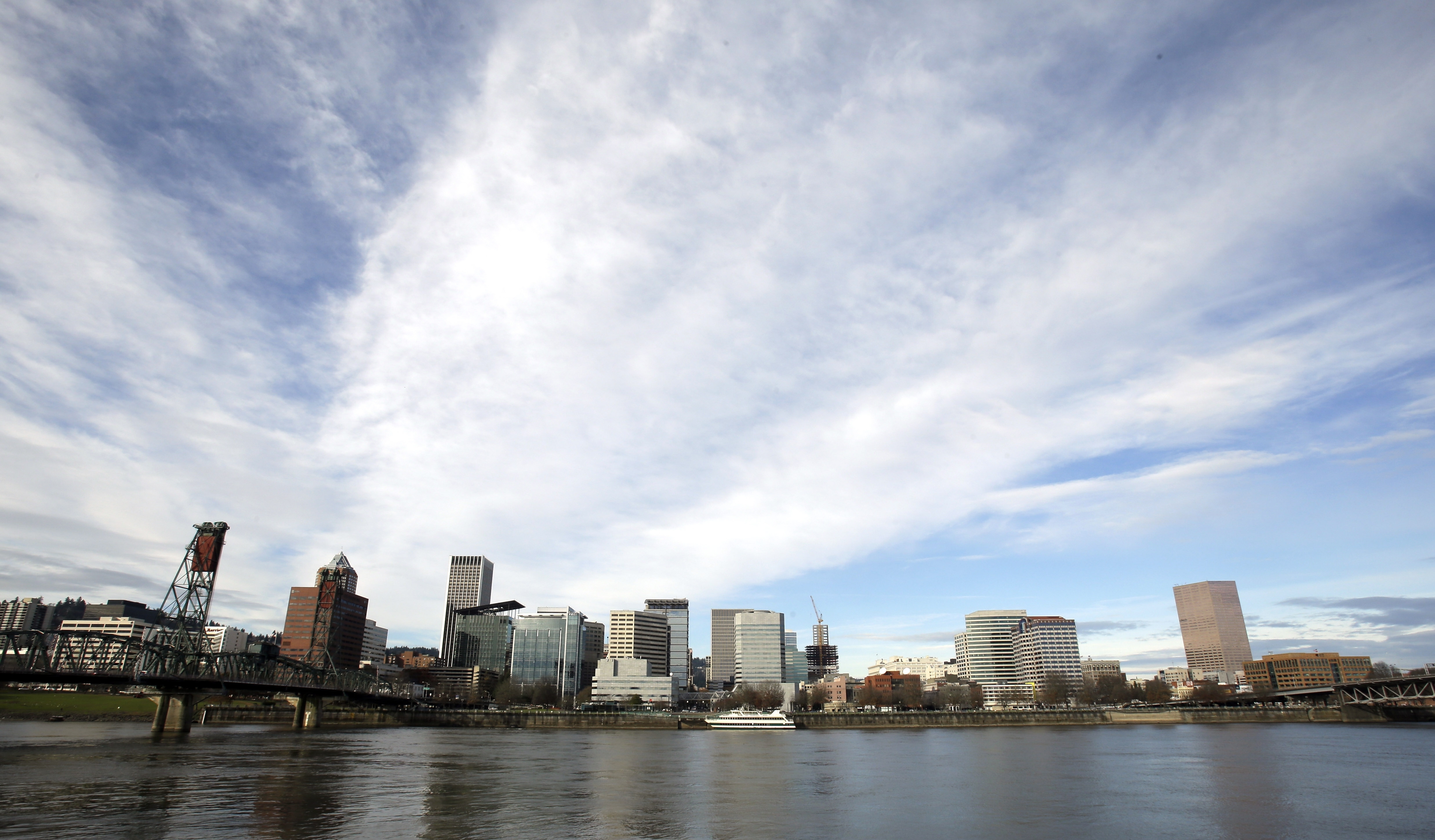
The late Vera Katz, who served as Portland’s mayor for 12 years told Willamette Week in 2007, “If you want government that’s responsive and manageable, you can’t continue to govern with a commission. Every one of the commissioners see themselves as mayors.”
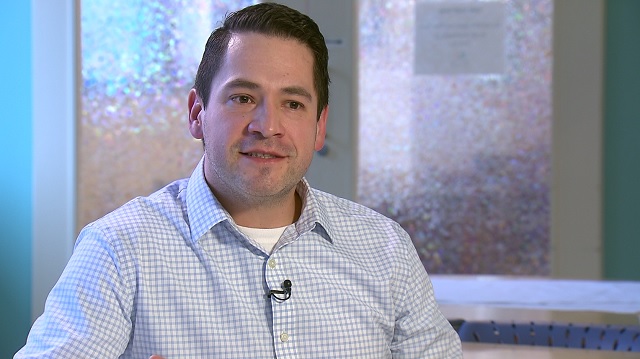
So is it time for Portland to amend the city charter and update its outdated form of government?
“Given the rapid change in this city and given the complexity of the issues we’re dealing with and given the increasing diversity of interests in this community, is this form of government really up to snuff anymore?” Wheeler said. “I have serious questions about whether it is.”
The Portland City Club asked the same question and commissioned a study a few months to find out.
“We have the same council, the same size of city council that we had 100 years ago when Portland was around 200,000 residents,” Dan Rivas with City Club said. “It’s not a spoiler alert to say that we have problems in this city, in this state, in this country with how equitable we are representing people and the report will kind of go into details of why we think that is and why we think now is the time to let it go.”
KOIN 6 News will have a full report on the results of that study when it’s released on Feb. 10.